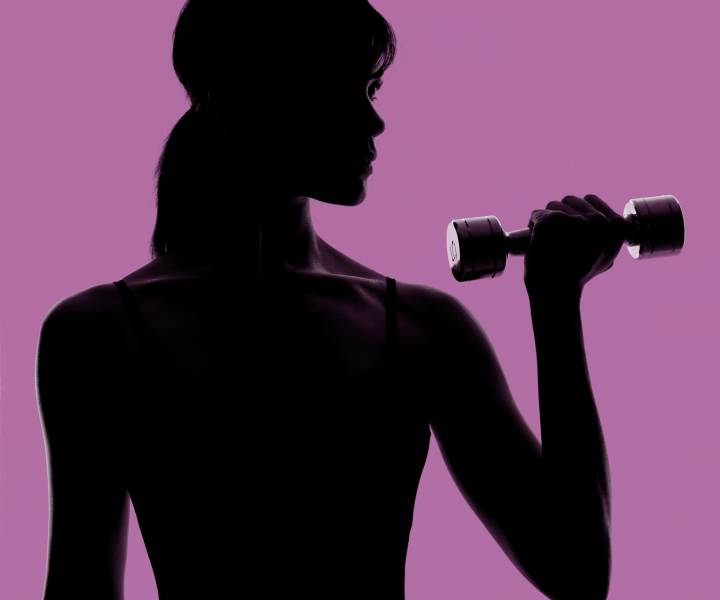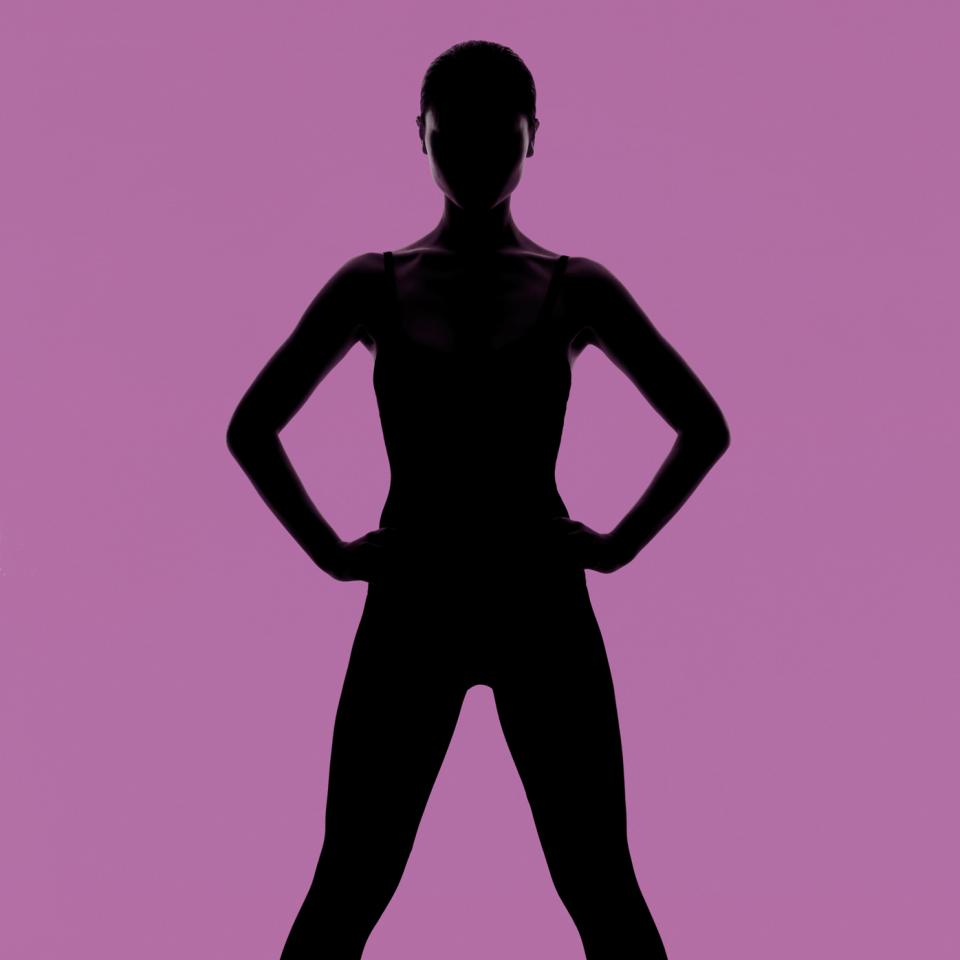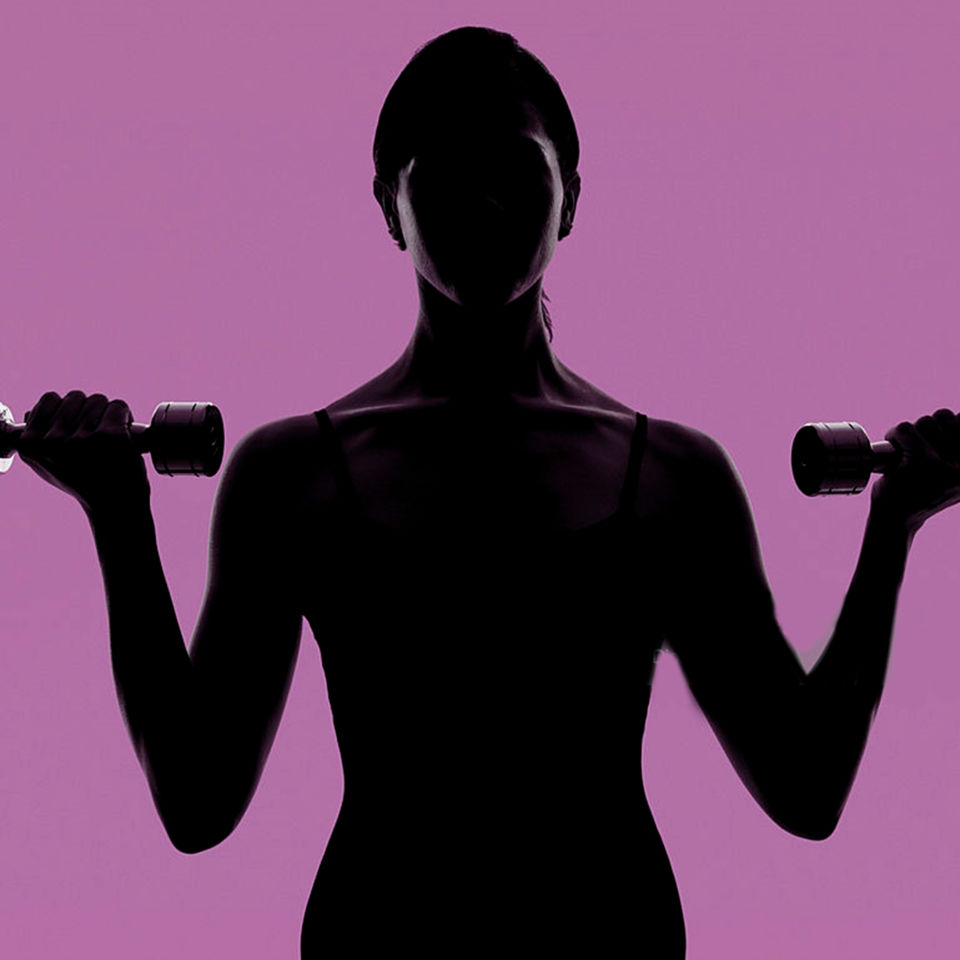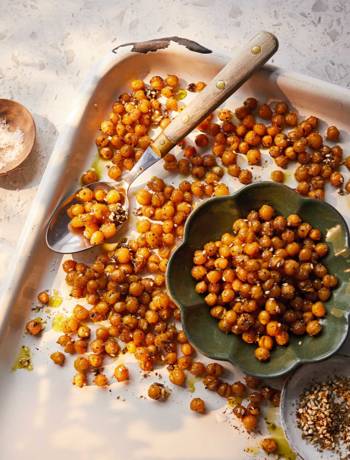Health
Why strong is the new skinny
by Hannah Ebelthite

A new fitness movement is sweeping social media and it’s something to celebrate. At last, the focus has changed from how we look to how we feel, and women are feeling stronger than ever, as Hannah Ebelthite explains.
Fed up of restrictive diets and doing hours of cardio to stay in shape? Then we’ve got good news: curves and muscles are back in fashion. At the time of writing, the hashtag #strongnotskinny had been used 5.2 million times on Instagram. Women are sharing stories of weights rooms, HIIT classes, CrossFit sessions, triathlons and obstacle-courses – and wearing kit with tough-girl slogans to match. ‘In recent decades, society equated skinny with success,’ says psychologist and body-image expert Emma Kenny (makeyourswitch.co.uk). ‘But unless you’re naturally skinny, such a body type requires a lot of effort and isn’t very healthy, mentally or physically.’
Thanks to research by scientists at Germany’s Christian-Albrechts University, obesity specialists now largely concur that we have a ‘set point’ that makes it hard to maintain weight loss. If our weight drops below this set point, we not only burn more calories, we also produce more hunger inducing hormones and find eating more rewarding; this could explain why between 80% and 90% of dieters fail to keep the weight off. ‘Thankfully, women are realising this,’ says Emma. ‘We’re not punishing ourselves by endless dieting anymore. We want to be fit and happy.’

Online community
Search the #strongnotskinny hashtag and you’ll find diverse, positive images of women looking strong and at peace with their body shapes; chances are you personally know someone who is training for a triathlon, bikes across the city to work or runs 10k in their lunch hour. ‘You can trace the start of the #strongnotskinny movement back to the success of the London 2012 Olympics, and the female icons it celebrated,’ says Sarah Lindsay, founder of London’s Roar Fitness gym (roar-fitness.com). 'We still get clients whose goal is to look better, but the aesthetic has changed. Women’s role models now are athletes and they want muscle definition.’ Then there’s the seminal marketing campaign, This Girl Can. ‘We launched the campaign in January 2015 to address the shortfall in women participating in sport and exercise,’ explains Kate Dale, head of campaign strategy at Sport England. ‘Our first advert tackled the internal judgements women place on themselves – they’re too fat, too wobbly to exercise, no one wants to see them sweaty or out of breath.’
Emma thinks the campaign resonated because women were fed up. ‘We were tired of being objectified and criticised,’ she says. ‘This movement is about women owning their own shape and fitness and doing what makes them feel good, regardless of how they might look.’ And it’s worked – in one year, This Girl Can inspired 2.8 million women to be more active. As with the #strongnotskinny tag, Kate believes social media has a key role. ‘It helps you find your tribe and connect with the people who make you feel normal, accepted and confident,’ she says. ‘You’re more likely to keep up an activity if you feel confident when you’re doing it. All our marketing directs women to the hashtag #ThisGirlCan. This gives them the autonomy to use it across social media, to start and take part in conversations. I love seeing women support and motivate each other via our hashtag.’
Pulling your weight
At the gym, training with weights is no longer just reserved for body builders. ‘My female clients love getting strong,’ says Nicola Addison, owner of Eqvvs Training in Knightsbridge (eqvvs.com) and resident personal trainer for Healthspan. ‘Strength training builds muscle and muscle is metabolically active,’ says Nicola. ‘So, the more muscle on your body, the more fat you burn even at rest. You will be leaner, more toned and stronger – something especially important for women as we age and muscle mass and bone density naturally reduces.’ Strength training is also beneficial to your health; US research by the University of South Carolina found total body strength is linked to lower risk of death from cardiovascular disease and cancer. Being strong in middle age is associated with ‘exceptional survival’, a term used to describe anyone living to 85 with no major disease, and it’s not just body that benefits. ‘Once you become stronger, everything in life becomes easier,’ believes Sarah, who trains clients using strength training and high-intensity interval training (HIIT). ‘When women see what they’re capable of, it crosses over into other parts of their life, so they become more confident and their self esteem is boosted. It’s amazing to witness the transformation.’
Emma agrees: ‘Your body can be whatever shape or size it needs to be to feel strong. For me, someone who’s not afraid to be a size 12 or 14 is in a far better mental place than someone constantly striving to keep themselves tiny.’ ‘Above all, I think feeling strong takes people away from the idea of exercise as punishment,’ adds Sarah. ‘Women train with us just three times a week, they eat healthily and they feel fantastic. Yes, there’s still an aesthetic element – lifting weights burns fat and shapes muscle. Strength training gives you the postural muscles to hold yourself better. But it’s about so much more than that.’
Balance is key
As with all trends, proceed with caution. ‘The beauty of #strongnotskinny is it’s about how you feel and perform, not how you look,’ says Emma. ‘Life should be balanced and varied. Being strong means living healthily, eating well, exercising in moderation and knowing that your body is your body – skinny, muscly, chubby, whatever – and it’s good enough.’ Above all, remember that the idea of ‘strong not skinny’ is about shifting the focus from how you appear, to what you can do. Concentrate on your fitness and energy, celebrate your increased confidence and mental strength and make use of social media to help other women feel the same.

How to get started
Want to join the #strongnotskinny movement? Here's how...
Try HIIT – aka High Intensity Interval Training. Workouts are short but deliver big results – the BBC presenter Michael Moseley improved his fitness with just three minutes of HIIT a week. Visit his website fastexercises.com for more information. On the DVD Joe Wicks: The Body Coach Workout there are seven different HIIT workouts. £9.99, Sainsbury’s (0800 636262; sainsburys.co.uk)
Join - Visit thisgirlcan.co.uk for real women’s fitness stories and a long list of ways to get active, plus links to classes near you across the country.
Read - Lisa Jackson is a former fitnessphobe-turned-cheerleader for the joys of running. Read her inspiring story in Your Pace Or Mine? (Summersdale, £9.99).












